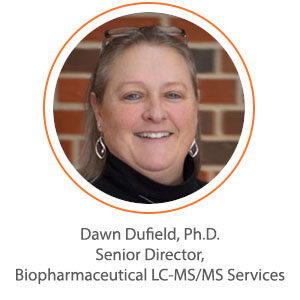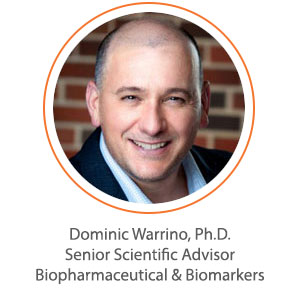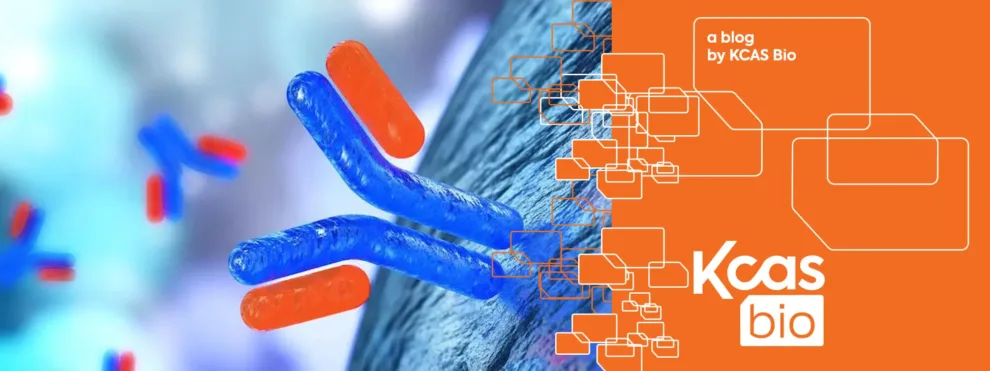In the complex and dynamic bioanalytical landscape of antibody-drug conjugate (ADC) services, where often time is critical and every research dollar counts, hybrid technology is quickly emerging as a game-changer. Hybrid offers a spectrum of advantages that redefine traditional approaches to bioanalytical ADC drug development.

At the forefront of these groundbreaking innovations is KCAS Bio. Our scientists are pioneering the integration of hybrid technology into bioanalytical ADC analysis by creatively solving issues with assay development/optimization which allows for KCAS Bio to push the limits of sensitivity for this cutting-edge instrumentation as well as combine various assays into mutiplexed analysis which can save time, money and sample volume.
Perhaps most noteworthy is that KCAS Bio is leading the hybrid technology space by participating in international and domestic conferences. We have learned that due to the rapid changes in both the regulations and lessons learned on the technology, what worked six months ago may not be the best path forward. As a result, we at KCAS Bio have evolved to help select the best hybrid formats on the front end (the immunoaffinity step), before committing time and resources to methodologies that may not prove cost-effective in the long run.

Opening New Research Possibilities
If you’re not familiar with ADCs, they harness the power of monoclonal antibodies (Mabs) that can target specific cells and deliver via a linker the conjugated payload (small molecule drug or toxin). This combination allows the drug or toxin to specifically target and attack the cells you want to ablate, a common example being cancer cells, without harming normal cells. All drugs have a common goal, to be highly effective with reduced side effects. ADCs hold the potential to do just that by using highly effective Mabs to deliver highly toxic compounds in safe doses. Due to the toxic nature of most of these payloads, the freely released toxin must also be monitored in circulation to ensure systemic safety.
However, recent advancements have expanded the scope beyond small molecule toxins to include various conjugates, such as peptides or oligonucleotides serving as “payloads”. Additionally, the hottest conjugation technology are ARCs (Antibody-small interfering RNA Conjugates) which hold the potential to further improve the efficacy and safety of conjugation therapies. These therapies do introduce a new dimension of bioanalytical complexity demanding innovative approaches for effective analysis.
In our experience, ADCs are some of the most complex bioanalytical modalities with respect to their Bioanalysis. The more effective the ADC in vivo, the more challenging bioanalytical in vitro/ex vivo. Funny how it works that way sometimes in science and life.
If you would like to learn more about KCAS Bio ADC, ARCs, and conjugation therapy expertise, we would be happy to have a consultative call to share our bioanalytical experience. With a 40+ year history and 18 FDA audits, we pride ourselves on accelerating science.

